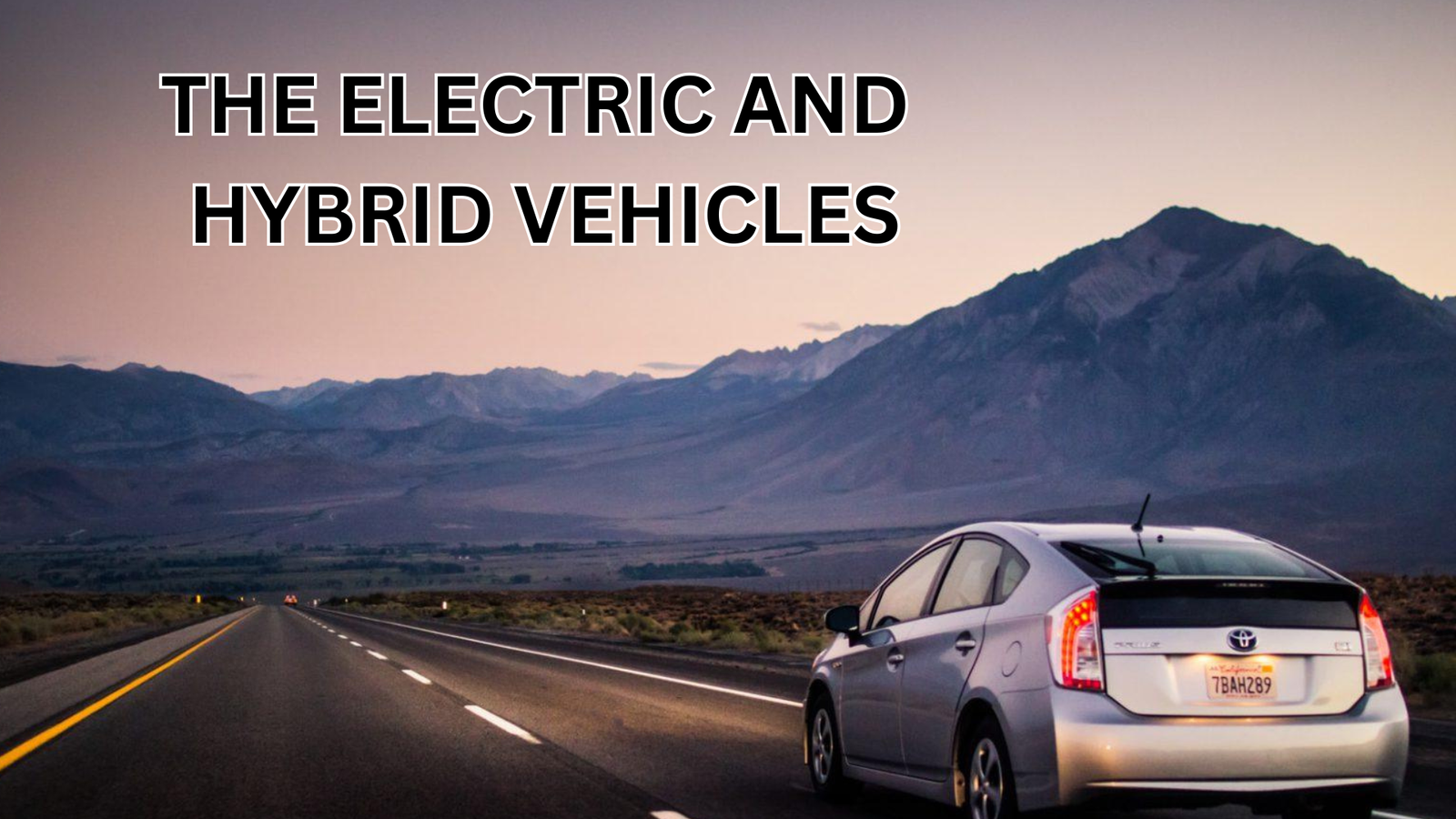Electric and hybrid vehicles are revolutionizing the way we think about transportation offering a cleaner greener alternative to traditional gasoline-powered cars as the world grapples with environmental challenges these innovative vehicles are becoming a popular choice for eco-conscious individuals electric vehicles (EV) rely entirely on electricity emitting zero harmful gases while hybrid vehicles combine an internal combustion engine with an electric motor for improved fuel efficiency and reduced emissions the rise of electric and hybrid vehicles is fueled by advancements in technology government incentives and growing consumer awareness of climate change.
These vehicles not only reduce our dependence on fossil fuels but also help lower air pollution making cities healthier and more livable the cost of maintaining EV is often lower than traditional vehicles due to fewer moving parts and the absence of engine oil changes hybrid vehicles bridge the gap for those not ready to transition fully to electric they offer the flexibility of using gasoline while benefiting from improved mileage and reduced emissions electric and hybrid vehicles represent a significant step toward a sustainable future making transportation more efficient affordable and environmentally friendly for people around the world.
Types of Electric and Hybrid Vehicles:
Electric and hybrid vehicles come in various types each designed to meet different needs and preferences fully Electric Vehicles (EV) also known as battery electric vehicles (BEV) run entirely on electricity stored in batteries they produce zero emissions making them the most environmentally friendly option popular models like the Tesla Model 3 and Nissan Leaf are examples of BEVs that offer smooth quiet rides and require charging through a power outlet or station plug-in Hybrid Electric Vehicles (PHEVs) are a mix of electric and traditional gasoline-powered cars.
Hybrid Electric Vehicles (HEV) do not require plugging in as they generate electricity through regenerative braking and the internal combustion engine they are ideal for those who want better fuel efficiency but are not ready for charging stations toyotas Prius is a well-known HEV that combines convenience and reduced emissions there are fuel Cell Electric Vehicles (FCEV) that use hydrogen to produce electricity these vehicles emit only water vapor and are promising for a zero-carbon future.
Benefits of Electric and Hybrid Vehicles:
Electric and hybrid vehicles offer numerous benefits making them an increasingly popular choice for modern transportation one of the biggest advantages is their positive impact on the environment fully electric vehicles (EV) produce zero tailpipe emissions significantly reducing air pollution and helping combat climate change hybrid vehicles while still using some gasoline improve fuel efficiency and lower carbon emissions compared to traditional cars these vehicles contribute to cleaner cities and healthier communities by reducing harmful gases and noise pollution another key benefit is cost savings.
Electric vehicles are cheaper to operate because electricity is typically more affordable than gasoline and they have fewer moving parts reducing maintenance costs hybrids also offer savings by using less fuel especially in city driving with frequent stops encourage the adoption of these vehicles making them more accessible electric and hybrid vehicles also provide a smoother and quieter driving experience along with advanced technologies like regenerative braking and modern infotainment systems by combining environmental benefits economic savings and innovative features these vehicles pave the way for a cleaner smarter and more sustainable future.
Limited Range and Charging Time:
One of the challenges of electric and hybrid vehicles particularly fully electric ones is their limited range and the time required for charging electric vehicles (EVs) rely on batteries for power and while battery technology has improved significantly most EVs still have a driving range of 150 to 300 miles per charge depending on the model this can be a concern for long-distance travelers or those living in areas with limited charging infrastructure drivers often worry about range anxiety the fear of running out of power before finding a charging station especially in remote locations charging time is another limitation compared to the quick refueling of traditional gasoline cars.
Depending on the charger type recharging an EV can take anywhere from 30 minutes at a fast-charging station to several hours with a standard home charger hybrid vehicles address this issue by using a combination of gasoline and electricity they still require careful planning to maximize their electric driving benefits efforts are being made to tackle these limitations through advancements in battery technology increasing the availability of fast-charging stations and extending vehicle ranges while these challenges may deter some potential buyers the growing infrastructure and innovations in the industry are steadily reducing these barriers.
Future of Electric and Hybrid Vehicles:
The future of electric and hybrid vehicles is incredibly promising driven by rapid advancements in technology growing environmental awareness and strong government support as concerns about climate change and pollution intensify the demand for cleaner and more sustainable transportation is expected to surge battery technology is continuously improving leading to longer driving ranges, shorter charging times and more affordable electric vehicles (EVs) innovations like solid-state batteries and wireless charging systems are set to revolutionize the industry making EV more convenient and vehicles will also evolve with improved fuel efficiency and greater reliance on electric power bridging the gap for those transitioning to fully electric cars.
Governments and automakers worldwide are investing heavily in expanding charging infrastructure ensuring that charging stations become as common as gas stations policies like tax incentives stricter emissions regulations and commitments to phase out gasoline vehicles are accelerating the shift toward electric and hybrid models the integration of artificial intelligence and autonomous driving features will enhance the overall experience of these vehicles making them safer and smarter as technology progresses and costs continue to decline electric and hybrid vehicles are poised to dominate the global market paving the way for a cleaner greener and more sustainable future in transportation.
